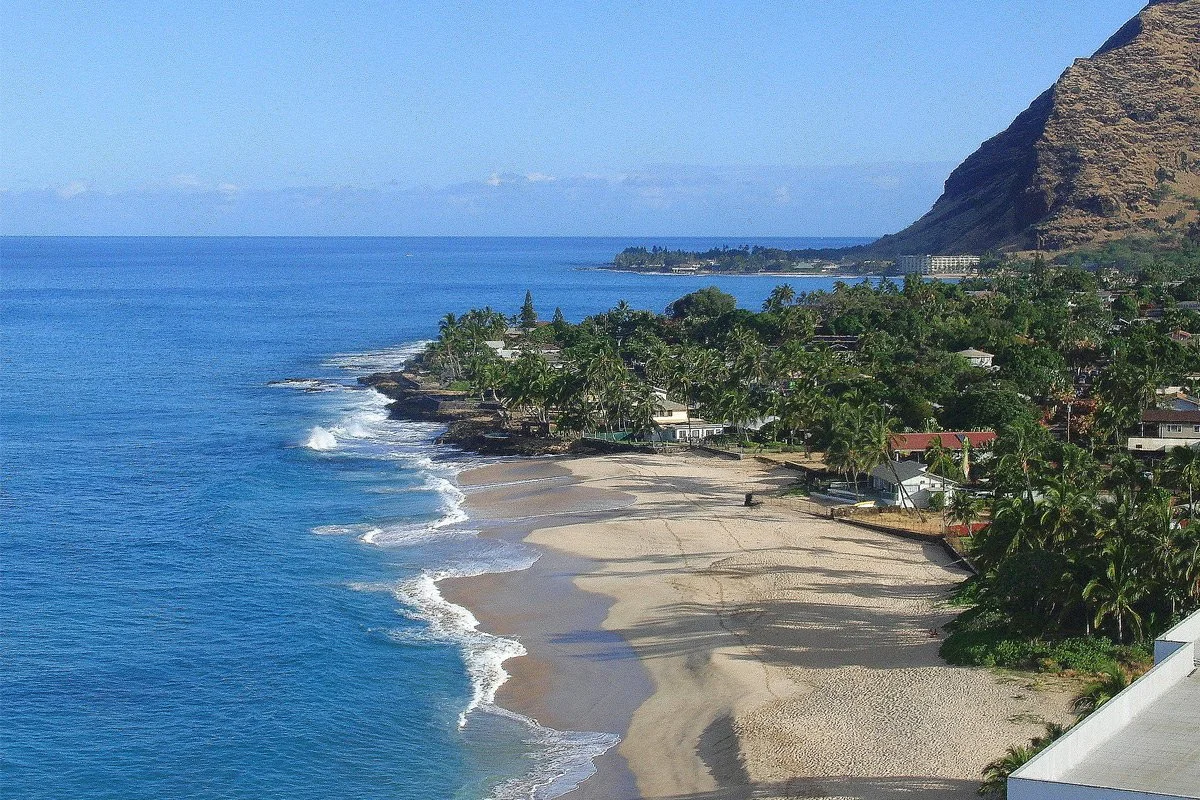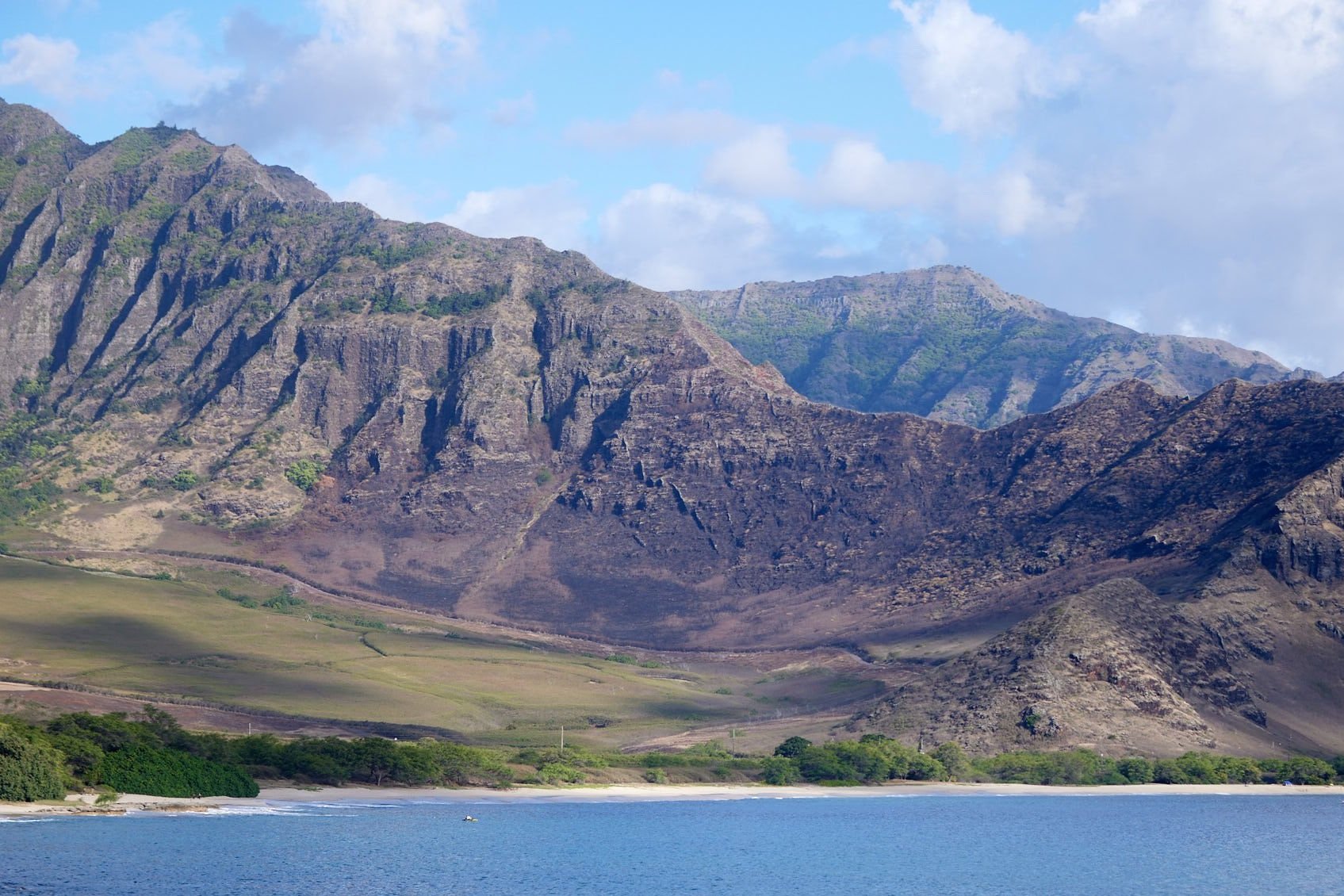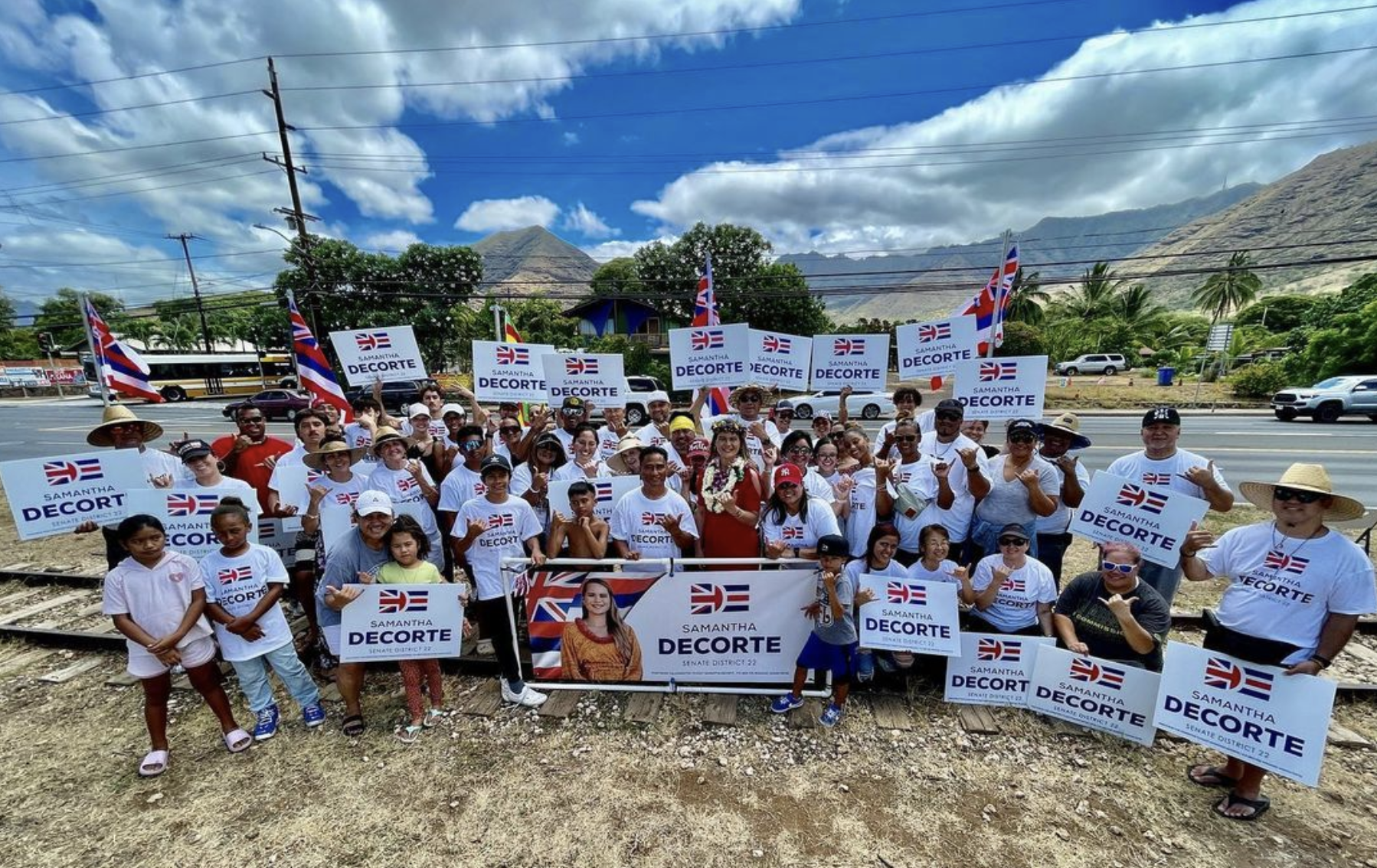
MY PRIORITIES
TOP PRIORITY: PUBLIC SAFETY
I have been a strong advocate to complete the Wai’anae Police Station. Most politicians will tell you, “that’s a city issue, let the city handle it”, but when kids are getting gunned down in the street and residents are murdered on their private property, it becomes an every-person-problem. I look forward to working with the city to collaborate on policy to reduce crime, as well as, funding to complete the police station.
I am a member of the Neighborhood Security Watch to visibly demonstrate our commitment to combating illegal activity and to send a strong message to criminals that the 96792 will not look the other way while illegal activity is going on next door to our homes.
THE ONLY WAY THAT I CAN MAKE A DIFFERENCE, ON ANY ISSUE, IS BY BEING ELECTED FIRST.
Some problems will require us to change laws, and others will require us to change leaders. The only way that I can make a difference, on any issue, is by being elected first. I cannot change laws, I cannot change outcomes, until we change leaders.
HOUSING
Senate District 22 representing Ko ‘Olina, Nānākuli, Mā‘ili, Wai‘anae, Mākaha, and Mākua comprises the largest Native Hawaiian homestead population in the State of Hawai’i. My priority remains housing Hawaiians first.
There are 28,000 beneficiaries on the Department of Hawaiian Home Lands waitlist and I intend to work closely with the Department and Commission to secure additional funding for land acquisition, infrastructure development, and home construction. Prioritizing homes for Native Hawaiians, would then free up the residential market, allowing more supply for renters and homeowners on the open market.
HOMELESSNESS
Homelessness continues to be a complex societal issue that must be addressed through a scope of solutions. These solutions should include adequate funding for non profit organizations to provide quality care to individuals struggling with mental health and substance abuse care, along with collaborative efforts with social workers and workforce organizations to get them back into the workforce and into low-cost affordable housing. For those who suffer severe mental illnesses and substance abuse problems, possibly a longer-term program.
I also want to address the issue of homelessness driven by the high cost of living. It is said that “we are one paycheck away from experiencing homelessness”. Job loss, rising rents, legal problems, old age, etc., are also contributing factors in our homeless crisis. Despite a booming tourist economy and full employment, most Hawaii residents are living paycheck to paycheck. This struggle affects every aspect of their lives and their children’s lives, and all too often results in homelessness.
What causes me great concern are states that are implementing a relocation program called the Special One-Time Assistance Program, or SOTA, which pays homeless families to move to other cities, as far away as Puerto Rico and Hawaii. I would like to introduce legislation that will implement qualifiers for those that arrive in Hawaii with no identification, immediately seeking social, medical and housing services. Such qualifiers would be requiring a 30-day grace period for any new resident before you can receive social services or if you are in immediate need of services, you must have a return ticket to your home state. We need to safeguard our services for our local residents.
In addition to housing Hawaiians, I would like to champion efforts in legislation to review and update the definition of “affordable”, so Hawaii residents are not subject to market-based assessments that tend to work against our local residents. To ensure that local families have access to every tool to purchase or rent a home and provide stability and security for their families.
The people of Hawaii need to be assured that Hawaii is their home and we, as a legislative body, are taking every measure possible to provide these safeguards so our families are not left with the tough decision to leave Hawaii, simply because they cannot afford to live here.
LAND AND WATER RIGHTS
The 65-year lease held by the U.S. Military to utilize Mākua will be ending in 2029. However, the U.S. Military has already begun the process to renew its lease by preparing an Environmental Impact Statement (EIS) for Army Training Land Retention for Mākua, as well as other native lands throughout Hawaii.
As a descendant of Mo’okini Heiau in North Kohala, Hawaii, I understand our kuleana to protect our lands. I remember being told when my Tutu-Wahine was young, recalling a group of individuals coming to their home to take possession of their property because they had the “deed”. This was at a time when “deeds”, “court hearings” and “public notice” were first initiated and Hawaiians were not familiar with this process of land ownership. As the notice was being served, she recalls her father standing outside with a rifle, refusing to leave. Eventually, they left and her father learned the process of land ownership through the court system and regained ownership of our lands. Today, these lands are still in our family.
Prior to the passing of The Hawaiian Homes Commission Act of 1919, Prince Jonah Kūhiō stated, “After extensive investigation and survey on the part of various organizations organized to rehabilitate the Hawaiian race, it was found that the only method in which to rehabilitate the race was to place them back upon the soil.”
ECONOMIC DEVELOPMENT & RECOVERY
Our history shows that the Ahupua’a system was very effective in sustainable living and economic development. Each community had their own ahupua’a system that was beneficial and specific to the needs of their community. They used the skills, talents and resources they already had by growing crops, building homes and educating our keiki that was feasible for their population.
As tourism remains our #1 economic driver for Hawaii, I would like to implement the Ahupua’a system in a modern way by using the resources we already have, driven by the cultural and native practices passed on by our kupuna in developing a Hawaiian Cultural Center on the Waianae Coast. This would provide a cultural experience for our visitors, while creating sustainable jobs for people that live here and want to work here, providing social, economic and educational services and to promote and perpetuate our Native Hawaiian culture and heritage.
Laie has the Polynesian Cultural Center. Waipahu has the Filipino Community Center. Honolulu has the Japanese Cultural Center. Yet, we have no Hawaiian Cultural Center in the state of Hawaii and I believe this should be developed on the Waianae Coast, which is home to the largest Native Hawaiian homestead population in the state.
In addition to a Hawaiian Cultural Center, I would like to diversify our economy by supporting agriculture and conservation industries. This proved to have positive outcomes during the statewide shutdown. The lesson from the last two years is that the State must be more self-reliant in food production to move away from importing over 80% of our food.
The Department of Agriculture and State of Hawaii have acquired a substantial amount of agricultural land that has not been developed for farming or supporting local farmers. It's important that we allow farmers, ranchers and slaughter houses to move our state to its own food security.
I would also like to see Hawaii become the premiere destination for film. The film industry would generate revenue, create living wage union jobs, and work collectively with tourism to promote our islands. We could incentivize film by building studios, providing better tax credits, and developing a local workforce, thereby creating a better business environment for networks and production companies.
In my own life, and in my own campaign, I recognize the importance, and the significance, of the contributions of my ancestors and Prince Jonah Kūhiō to enrich, and to perpetuate, our culture, and our conservative values by restoring our lands back to our people.
If elected, I look forward to working closely with our congressional leaders to return Mākua back to the people of Hawaii.
The Red Hill fuel leak is now an impending threat to our main aquifer source on Oahu and it has been well documented that our most precious resource, water, is now compromised. Even after it became a full-blown emergency, the DoD still did not respond immediately to shut down its fuel facility. This raises bigger concerns as Hawaii remains the only state in the nation that our water is held in public trust with no assurance that this will not happen again.
CRIME & POVERTY
We are a proud, strong, resilient, respectful, and compassionate community - however, our streets are filled with poverty and crime, our families are surrounded by drug abuse, addiction, and domestic violence, and gambling, theft, and murder have been tolerated and gone unpunished for far too long.
We are notoriously labeled by the state and city as the “dumping grounds” of Hawaii and is evident by the placement of landfills, sewers, power plants, airports, refineries, and industrial zones. We suffer from the social, political and economic injustices, imposed on us by those outside of our community in positions of wealth, influence, privilege, and power. Our community is criticized, overlooked, abused, and forgotten. Many political leaders and government officials, with the exception of a few, do not serve the interests of our community, and most definitely not our native people.
Our community faces many problems but I am confident in our collective ability to overcome them.
The State of Hawaii Organization of Police Officers (SHOPO) has endorsed my campaign because they want to work with a Senator that will prioritize crime reduction in District 22. I look forward to addressing these issues and solutions through legislation, with my community and local law enforcement.
Photo credit: here
photo credit found here
Photo credit found here
Photo credit found here
Mahalo SHOPO for your endorsement!
SPIRIT OF ALOHA LAW
Chapter 5 of Hawaiʻi Revised Statutes:
§ 5-7.5 "Aloha Spirit". (a) "Aloha Spirit" is the coordination of mind and heart within each person. It brings each person to the self. Each person must think and emote good feelings to others. In the contemplation and presence of the life force, "Aloha", the following unuhi laulā loa may be used:
"Akahai", meaning kindness to be expressed with tenderness;
"Lōkahi", meaning unity, to be expressed with harmony;
"ʻOluʻolu" meaning agreeable, to be expressed with pleasantness;
"Haʻahaʻa", meaning humility, to be expressed with modesty;
"Ahonui", meaning patience, to be expressed with perseverance.
These are traits of character that express the charm, warmth and sincerity of Hawaii's people. It was the working philosophy of native Hawaiians and was presented as a gift to the people of Hawaiʻi. ''Aloha'' is more than a word of greeting or farewell or a salutation. ''Aloha'' means mutual regard and affection and extends warmth in caring with no obligation in return. "Aloha" is the essence of relationships in which each person is important to every other person for collective existence. ''Aloha'' means to hear what is not said, to see what cannot be seen and to know the unknowable. (b) In exercising their power on behalf of the people and in fulfillment of their responsibilities, obligations and service to the people, the legislature, governor, lieutenant governor, executive officers of each department, the chief justice, associate justices, and judges of the appellate, circuit, and district courts may contemplate and reside with the life force and give consideration to the "Aloha Spirit". [L 1986, c 202, § 1]













